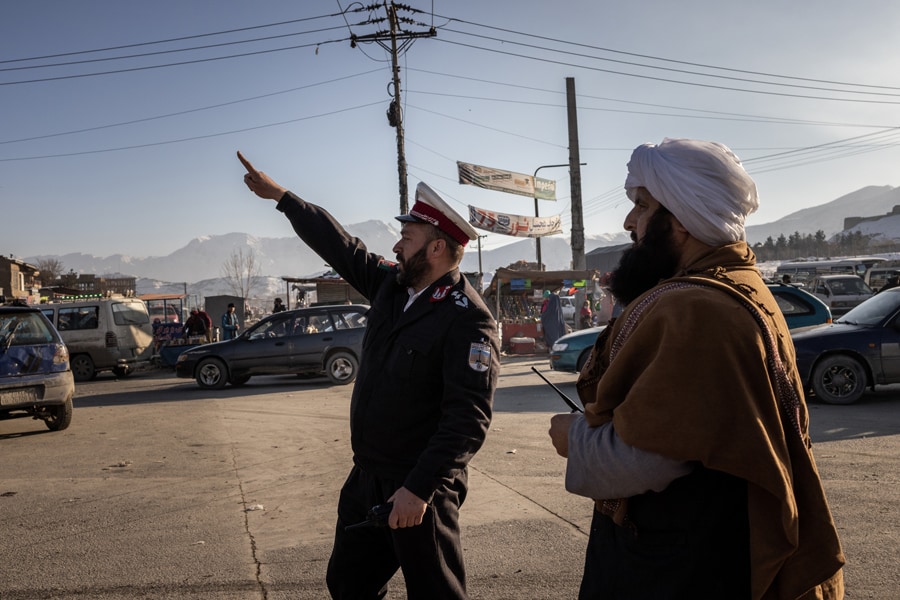
The Taliban have staffing issues. They are looking for help in Pakistan
With any new regime comes new appointees, but the difference in Afghanistan is that the new government had operated as a hard-line Islamic insurgency for two decades, so the cadre of people they are plucking leaders from are soldiers and religious scholars, rather than political allies or technocrats
 The head of Kabul’s traffic police, Khyal Mohammad Ghayoor, right, visits a traffic police officer on Jan. 10, 2022. The new Taliban government’s practice of filling management jobs with soldiers and theologians has left gaps that they are filling by recruiting experienced ex-Taliban fighters that had started new lives in Pakistan. (Jim Huylebroek/The New York Times)
The head of Kabul’s traffic police, Khyal Mohammad Ghayoor, right, visits a traffic police officer on Jan. 10, 2022. The new Taliban government’s practice of filling management jobs with soldiers and theologians has left gaps that they are filling by recruiting experienced ex-Taliban fighters that had started new lives in Pakistan. (Jim Huylebroek/The New York Times)
It was 20 years ago when the jihadi, a defense ministry official in the Taliban’s first government, fled Afghanistan as U.S. troops swept into the country. He settled in southwestern Pakistan with other Afghans, bought a house and became a baker.
Then, after Kabul fell to the Taliban in August, Khyal Mohammad Ghayoor received a call from a stranger who identified himself only by the dual honorifics, Hajji Sahib, which roughly translates to a distinguished man who has made a pilgrimage to Mecca. The man told Ghayoor he was needed back in Afghanistan, not as a baker but as a police chief.
Now, Ghayoor oversees 1,450 people as the head of Kabul’s traffic police.
“I am very excited to be back in a free and liberated Afghanistan,” he said.
©2019 New York Times News Service







